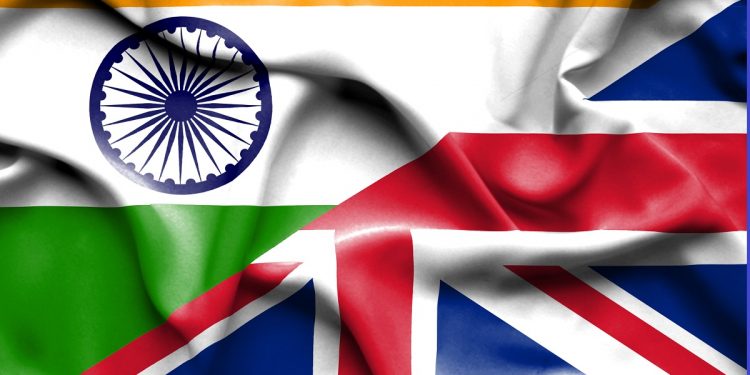New Delhi: A 30-member official delegation from the UK will start the next round of negotiations for a free trade agreement with the Indian team here from Monday to close remaining issues so that the two countries conclude the talks soon, an official has said.
Both countries have recently concluded the 13th round of negotiations. A team led by Commerce Secretary Sunil Barthwal was in London last week to give an impetus to the talks.
The UK team dealing with investment-related matters is already here, and the talks for the proposed bilateral investment treaty (BIT) with finance ministry officials are progressing at a faster pace.
“The 30-member team will be here tomorrow, and both sides are attempting to close the remaining issues, such as rules of origin. Everything is at the closure level,” the official said.
The ‘rules of origin’ provision prescribes that minimal processing should happen in the FTA country so that the final manufactured product may be referred to as goods originating in that country.
Under this provision, a country that has inked an FTA with India cannot dump goods from some third country in the Indian market by just putting a label on it. It has to undertake a prescribed value addition in that product to export to India. Rules of origin norms help contain the dumping of goods.
The investment treaty is being negotiated as a separate agreement between India and the UK.
These investment treaties help in promoting and protecting investments in each other’s country. The main point of contention involved in this pact is about the mechanism for the settlement of disputes.
The BITs help in promoting and protecting investments in each other’s countries.
India has proposed to first utilise all local judicial remedies for settlement of disputes before initiating an international arbitration.
To provide duty concessions in the automobile sector, several rounds of consultations have been held with the domestic players in India.
According to an expert, UK-based automakers like JLR, Bentley, Rolls-Royce, and Aston Martin cater to the luxury segment, while Indian manufacturers are mostly in the mass segment and are mainly dominated by small and mid-size passenger cars and two-wheelers.
The Indian industry is demanding greater access for its skilled professionals from sectors like IT, and healthcare in the UK market, besides market access for several goods at nil customs duties.
On the other hand, the UK is seeking a significant cut in import duties on goods such as scotch whiskey, automobiles, lamb meat, chocolates and certain confectionary items.
Britain is also looking for more opportunities for UK services in Indian markets in segments like telecommunications, legal and financial services (banking and insurance). Alcoholic beverage industry body Confederation of Indian Alcoholic Beverage Companies (CIABC) director-general Vinod Giri said that for Scotland Whiskey (bottled), India can consider reducing the import duties to 100 per cent immediately from 150 per cent and then 50 per cent in 10 years.
Similarly, for bulk imports, the duties can be cut down to 100 per cent immediately and then 50 per cent in 10 years as the bulk imports are treated as intermediate goods in the domestic market. The Indian alcoholic beverage market is worth $52 billion.
Replacing France, India became the top buyer of Scotch whisky by volume in 2022, according to the Scotch Whisky Association.
The bilateral trade between India and the UK increased to $20.36 billion in 2022-23 from $17.5 billion in 2021-22.
PTI






































